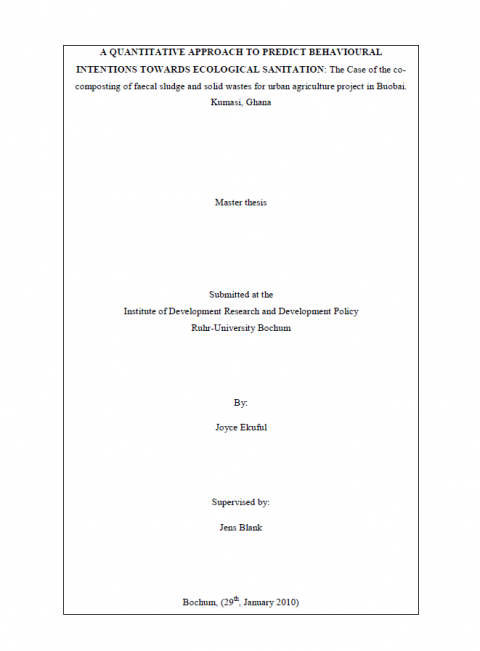A quantitative approach to predict behavioural intentions towards ecological sanitation - The case of the co-composting of faecal sludge and solid wastes for urban agriculture project in Buobai/Kumasi, Ghana
Ekuful, J. (2010)

Published in: 2010
Author:
Ekuful, J.
Uploaded by:
SuSanA secretariat
Partner profile:
common upload
4334 Views
30 Downloads
Location of library entry
Content - Summary
Producing co-compost fertilisers from municipal solid wastes and human excreta is seen as one way of reducing the large volumes of wastes that are generated in the urban areas of Ghana. Since there are generally negative perceptions about wastes, the purpose of the study was to outline the factors that will determine the intentions of farmers to use the co-compost fertilisers in agriculture. To be able to identify the factors that predict intentions, the Theory of Planned Behaviour was applied. Based on this theory factors such as attitude, subjective norm and perceived behavioural control were assumed to be variables that predict the intentions of farmers towards the usage of the fertiliser.
Bibliographic information
Ekuful, J. (2010). A quantitative approach to predict behavioural intentions towards ecological sanitation - The case of the co-composting of faecal sludge and solid wastes for urban agriculture project in Buobai/Kumasi, Ghana.
Filter tags
Composting, vermicomposting (solid waste), composting toilets English Faecal sludge treatment processes Faeces or faecal sludge Peri-urban Sub-Saharan Africa Urban (entire city)














